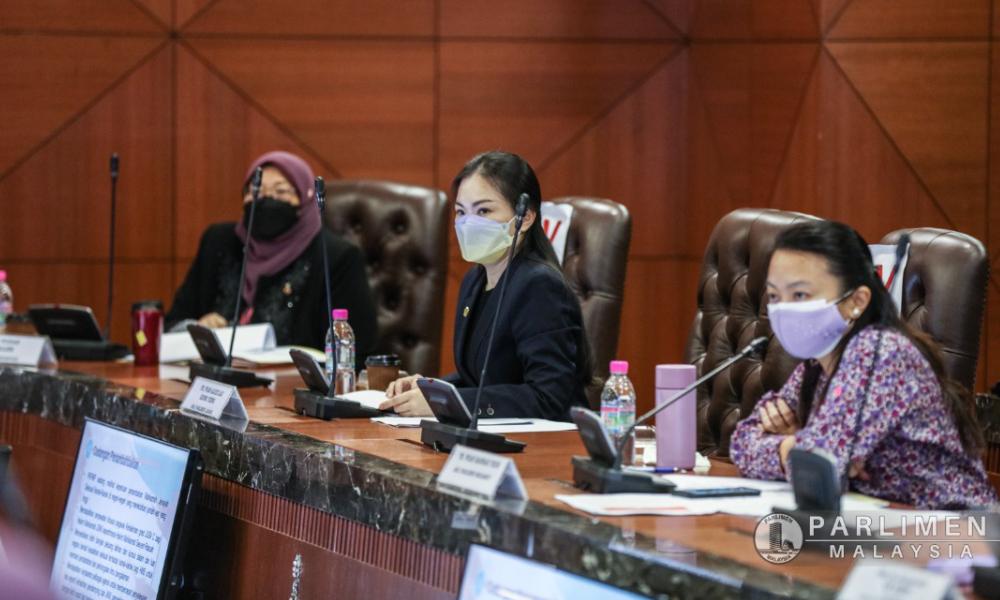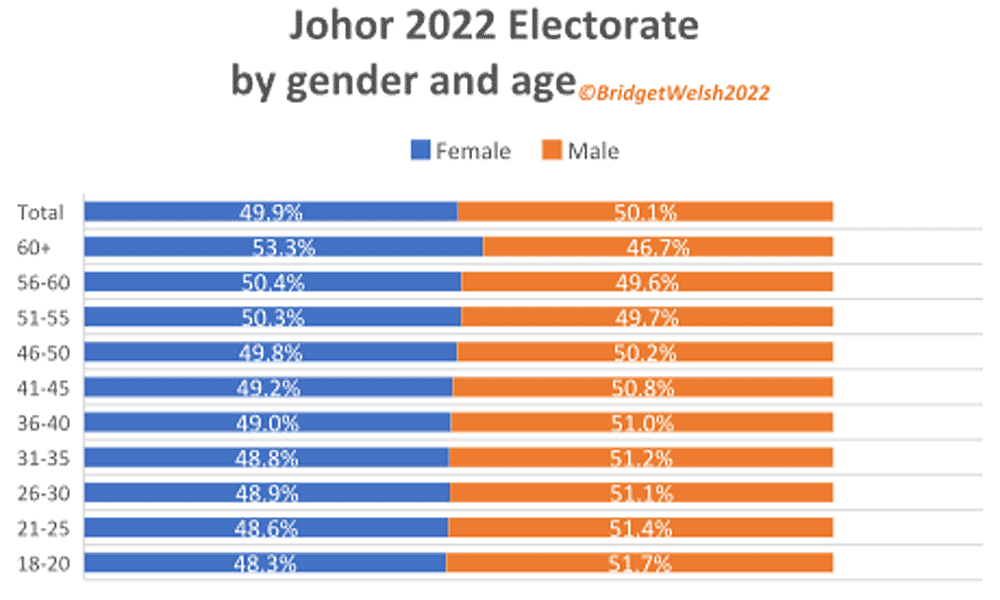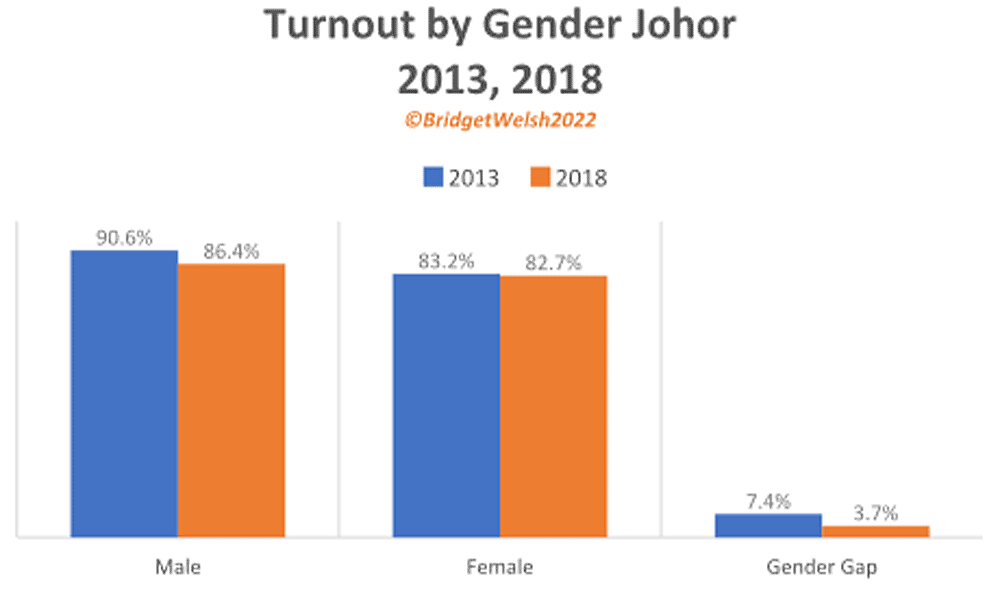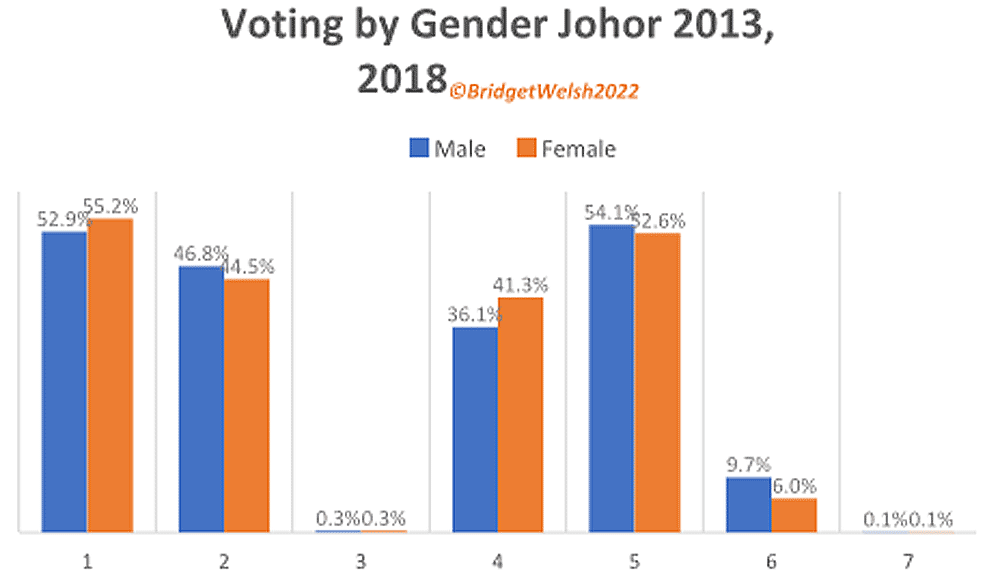It's International Women's Day tomorrow. This is a day not only to acknowledge and honour the role of women in society but also to draw attention to the challenges women face.
Most attention focuses on the sexual harassment, violence and discrimination women face, from citizenship to wages. Recently, there has been greater attention to the issues of women's health – menstruation, breast cancer and, to a lesser extent, menopause. These issues have taken centre stage in civil society and policy mobilisation.
In studies of elections, the focus has been on women's representation, namely the number and share of candidates. Research also looks at how women's issues and women are engaged in campaigns and voting patterns. Repeatedly, campaigns focus on men and competition among men. This was the case in Sabah 2020 polls, for example.
So far, Johor's 2022 campaign and previous voting patterns show that political parties do not take women adequately seriously and see women through narrow genderised lens. Women are half the electorate in Johor, more than half in 25 seats, and their support is largely taken for granted.
Women Johoreans are keenly aware of political issues and engaged. Data on previous voting behaviour shows that, although there are important gender gaps and differences in voting along gender lines, women participate in high numbers.
The problem is that campaigns are not necessarily engaged with them and the issues they care about. Given the lacklustre campaign so far and Covid realities (likely to contribute to voters staying home), political parties are not doing enough to engage women.

Inadequate representation
While Johor has seen more candidates fielded (at 37), many of whom stand a good chance of being elected as they are in competitive seats, the overall share of women fielded at 15 percent remains low.
Studies repeatedly show that cultural norms, resistance within political parties and their leadership and inadequate support/mentoring of female candidates are obstacles to expanding female representation.
Politics in Malaysia is still primarily seen as a 'man's business' with those largely entering into the political fray to make money rather than to genuinely serve the public.
Trends in recent elections have not fundamentally expanded female representation. Over the past few elections, there has not been an increase in the overall share of female representatives.
Only 15 percent of the parliament consists of women – below the regional average of 21 percent and even further below the global average of 26 percent. Johor's state assembly before it was dissolved only had five out of 56 women, or 8.9 percent.
Since the Sheraton Move of February 2020, women have been seen to be politically side-lined, with key appointees removed from government-linked companies' (GLCs) boards/leadership and regularly and disproportionately subject to intensive ridicule of women in their political roles.
Too much attention continues to focus on the appearance of a woman rather than her policies and platforms. Often when female leaders make a mistake, they are pilloried, while many male political leaders, who have legally been convicted for their mistakes, such as former prime minister Najib Abdul Razak, are brought back to glory.
Differences among Johor women voters
Women voters vary considerably. The even split between women and men (49.9 percent and 51.1 percent) among Johor voters overall obscures differences along gender lines.
It is important to look at other socio-economic features to understand how women and men differ and shape political engagement. Three important features stand out in research: marital status, age and income. Women disproportionately are among the poorest Johoreans, notably single mothers.
The information on female voters is sparse. The data on the Johor electorate that is available shows that women are more concentrated than men among older voters, 53 percent above 60 compared to 47 percent of men.
Women usually live longer, and this can help explain this difference. Men make up slightly more of the younger voters, with many coming from outside of Johor to work. Women also make up a slightly larger share of voters in rural areas as well.
A starting point to look at both women and men in the electorate is to recognise differences among them. A gender lens can deepen and improve policy and voter engagement.

Gender turnout gap
In terms of voting behaviour, the biggest difference in voting in Johor has been turning out to vote. Often as mothers, caretakers and working in the private sector, women regularly face greater demands on their time compared to men, known in scholarship as the 'double or triple burden,' making it more difficult for women to have time to vote.
Women vote less than men in Johor. Malaysia's gender gap in turnout has contracted over time, but there still remains an estimated difference of four percent during the last general election (GE) between men and women coming out to vote.
Do note, however, that in 2013, there were many phantom male voters in that marred election that can explain in part the larger gender turnout gap.

BN women bonus
GE14 witnessed a widening of differences by gender in patterns of support compared to GE13. BN's support traditionally relies heavily on women. This was apparent in 2018, where an estimated five percent more women voted for BN compared to men.
Men were more likely to change their loyalties to Pakatan Harapan in 2018. The 'male swinger' effect was evident in both Sabah and Malacca, as their voting loyalties changed more than women in recent state elections.
This can, in part, be understood as the result of greater engagement by campaigns with male voters than women. The Covid-19 pandemic has accentuated the gender difference, with more women staying home during the pandemic compared to men.
The data also shows a difference with regard to PAS along gender lines, with the party garnering more male (although in Johor low) support. PAS is not known for its support of women and women's issues. The current issue of child abduction remains a sensitive one in this campaign, especially among women, and is likely to continue low support for PAS from women.

Minimalism in political party manifestos
Given their voter numbers, it is striking to see how little engagement there is with women and women's issues.
Galen Centre's Ova has provided an excellent review of women's issues in party manifestos. It can be found here.
The promises in the manifestos of the different parties for women do not reach one page; they range from broad calls for greater participation on GLC boards (ironically proposed by Perikatan Nasional (PN), whose record in this area was the among the worst) to more concrete measures to set up a Family and Children Department and increased support for single mothers by Harapan.
Many seem aspirational targets, without clear programmes to reach these targets. PN has the most economically-focused pledges to support women in business, with the other coalitions focusing on family and childcare. BN's manifesto, ironically, is the most sparse – creating a women's institute and echoing the measure of all coalitions, expanding taska or child care centres.
The view of women in the manifestos is narrow. Women are primarily seen as mothers and taking care of their children, not as young students/professionals, or entrepreneurs or retirees, even more vulnerable without proper pensions.
This genderised view of women as voters is limiting in that it continues to do so in 'women's roles'. Political parties can do more in their engagement, staring with the lens they view women.
When the vote is counted in Johor, women will have spoken. The hope is that the representation threshold in the assembly will minimally go above 10 percent and that at least some of the grandiose promises about women gain traction.
Political parties should note that election day will also be a women's day. - Mkini
BRIDGET WELSH is a senior research associate at the Hu Fu Centre for East Asia Democratic Studies and a senior associate fellow of The Habibie Centre. She currently is an honorary research associate of the University of Nottingham, Malaysia's Asia Research Institute (Unari) based in Kuala Lumpur. She tweets at @dririshsea and wishes all readers a happy new year ahead.
The views expressed here are those of the author/contributor and do not necessarily represent the views of MMKtT.



No comments:
Post a Comment
Note: Only a member of this blog may post a comment.